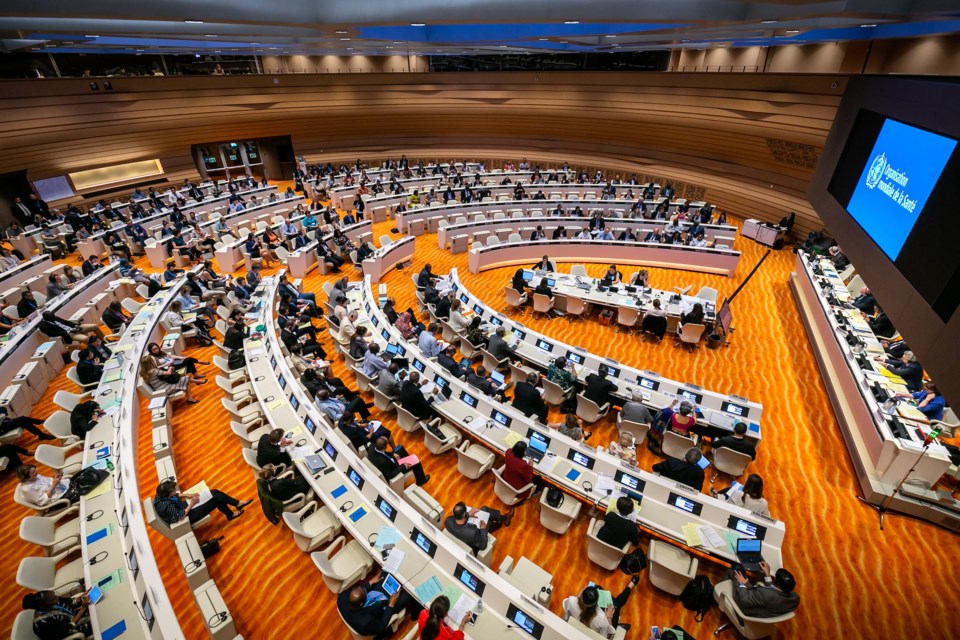Canada is part of a coalition of 62 countries calling for an “independent and comprehensive evaluation” of the World Health Organization’s timeline of actions pertaining to the COVID-19 pandemic.
The May 18 World Health Assembly draft resolution is not an explicit exploration of China’s early response in the pandemic, although the investigation could provide insight as to what Chinese officials told the WHO and what the United Nations body knew in the early days, during the first reported outbreak in Wuhan, China in late December, 2019.
Rather, it is a call “to review experience gained and lessons learned from the WHO-coordinated international health response to COVID-19.”
The independent investigation, if approved, will look at the effectiveness of WHO mechanisms at its disposal to handle the outbreak. The investigation calls for “recommendations to improve global pandemic prevention, preparedness, and response capacity, including through strengthening, as appropriate, WHO’s Health Emergencies Programme.”
China is not a party to the resolution, nor is the United States of America.
Joining Canada from the West are the United Kingdom, Norway, Australia, New Zealand and the European Union countries. Democratic Asian countries Japan and South Korea are also proponents. Brazil, Russia and India, three of the four BRIC countries, are also proponents.
Australia and other countries have called for a more an investigation into Beijing’s reporting of COVID-19.
The Conservative Party of Canada has been pushing the Liberal government to demand Beijing account for its handling of the virus outbreak.
“The Chinese government has not been transparent with the rest of the world about the coronavirus. Australia asked for an in-depth investigation, but has received threats from the communist regime,” MP Pierre Paul-Hus told a committee May 5.
Prime Minister Justin Trudeau has, so far, restrained from critiquing China, or even questioning its authoritarian regime in how it handled the outbreak. Trudeau maintains his focus is on the immediate public health response.
The WHO has been criticized for heeding to China’s lead and its demands, such as keeping trade and flights unrestricted from China.
Meanwhile, the resolution also calls on the WHO to “continue to work closely with the World Organisation for Animal Health (OIE), the Food and Agriculture Organization of the United Nations (FAO) and countries, as part of the One-Health Approach to identify the zoonotic source of the virus and the route of introduction to the human population.”
This matter has also been contentious and marked with unknowns, to date. Some reports indicate the novel coronavirus emerged before December, 2019 and the widely accepted first outbreak in Wuhan, possibly in a wet market that sells seafood and live wild animals.
The Communist Party of China has previously tried to condemn the United States for the virus outbreak. Chinese Foreign Ministry spokesman Zhao Lijian suggested in March it may have been planted by the U.S. army.
Nevertheless the resolution calls for solidarity to all countries affected by COVID-19 and “international cooperation to ensure global access to medicines, vaccines and medical equipment to face COVID19.”
It declares that the “pandemic disproportionately affects the poor and the most vulnerable people, with repercussions on health and development gains, in particular in low- and middle-income and developing countries.”
And, the resolution calls “to reduce the risk of similar events as well as to provide guidance on how to prevent SARS-COV2 infection in animals and humans and prevent the establishment of new zoonotic reservoirs, as well as to reduce further risks of emergence and transmission of zoonotic diseases.”
Recent new virus outbreaks have been largely tied to animal consumption, although not all zoonotic diseases are (encroachment on wildlife is also a big factor), according to the WHO.
COVID-19 is similar to SARS, which was sourced to wildlife consumption in China in 2003. More recent H5N1 bird flu outbreaks have been tied to wet markets, poultry production and mixed farming practices. The 2009 H1N1 swine flu is believed to have have started in U.S. factory farms, not dissimilar to mad cow disease being tied to unhealthy agricultural practices.



